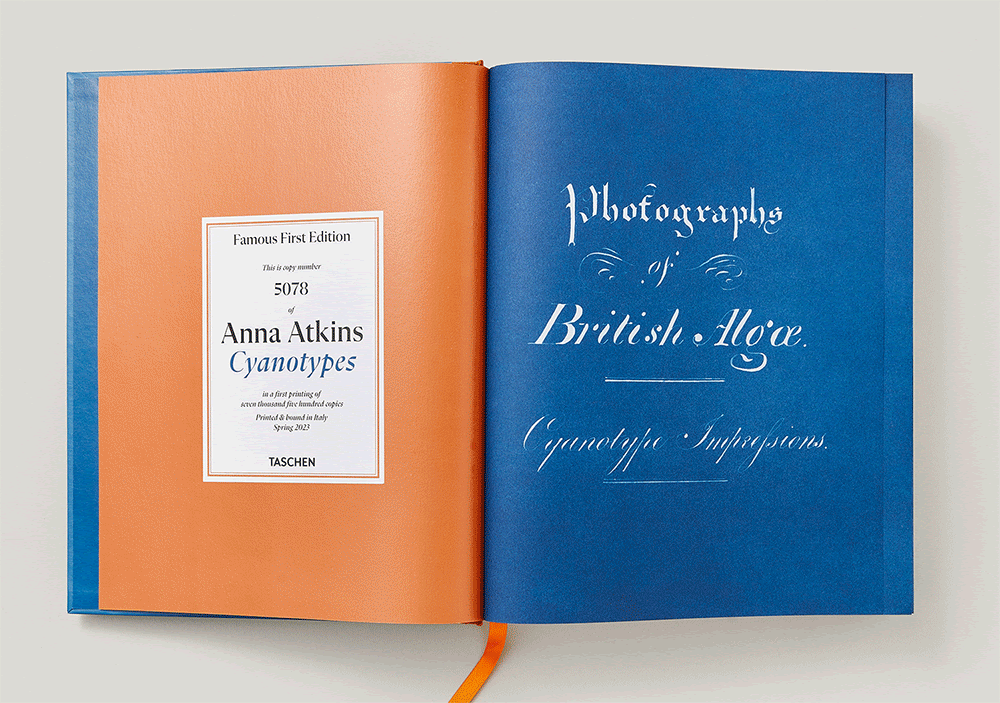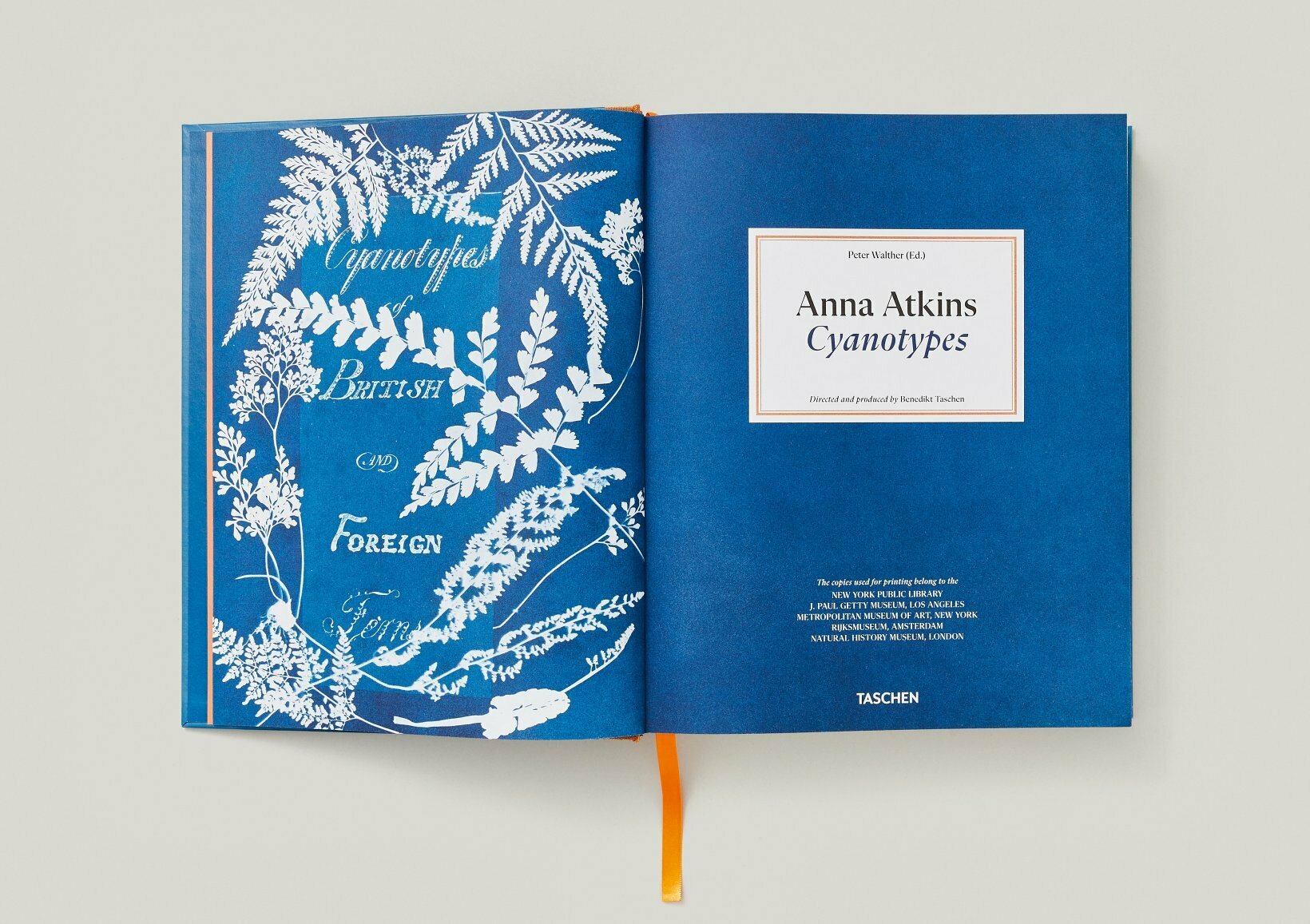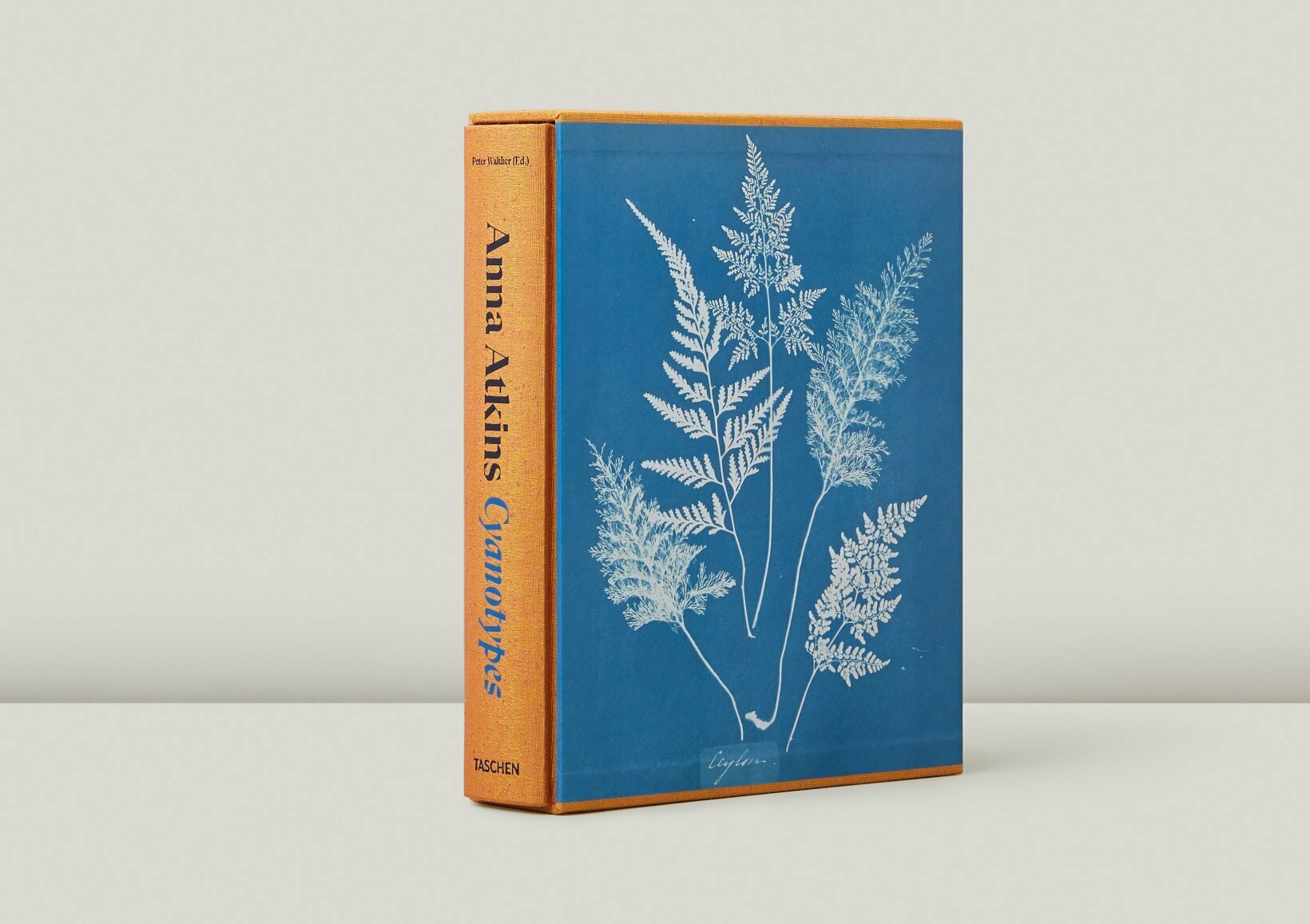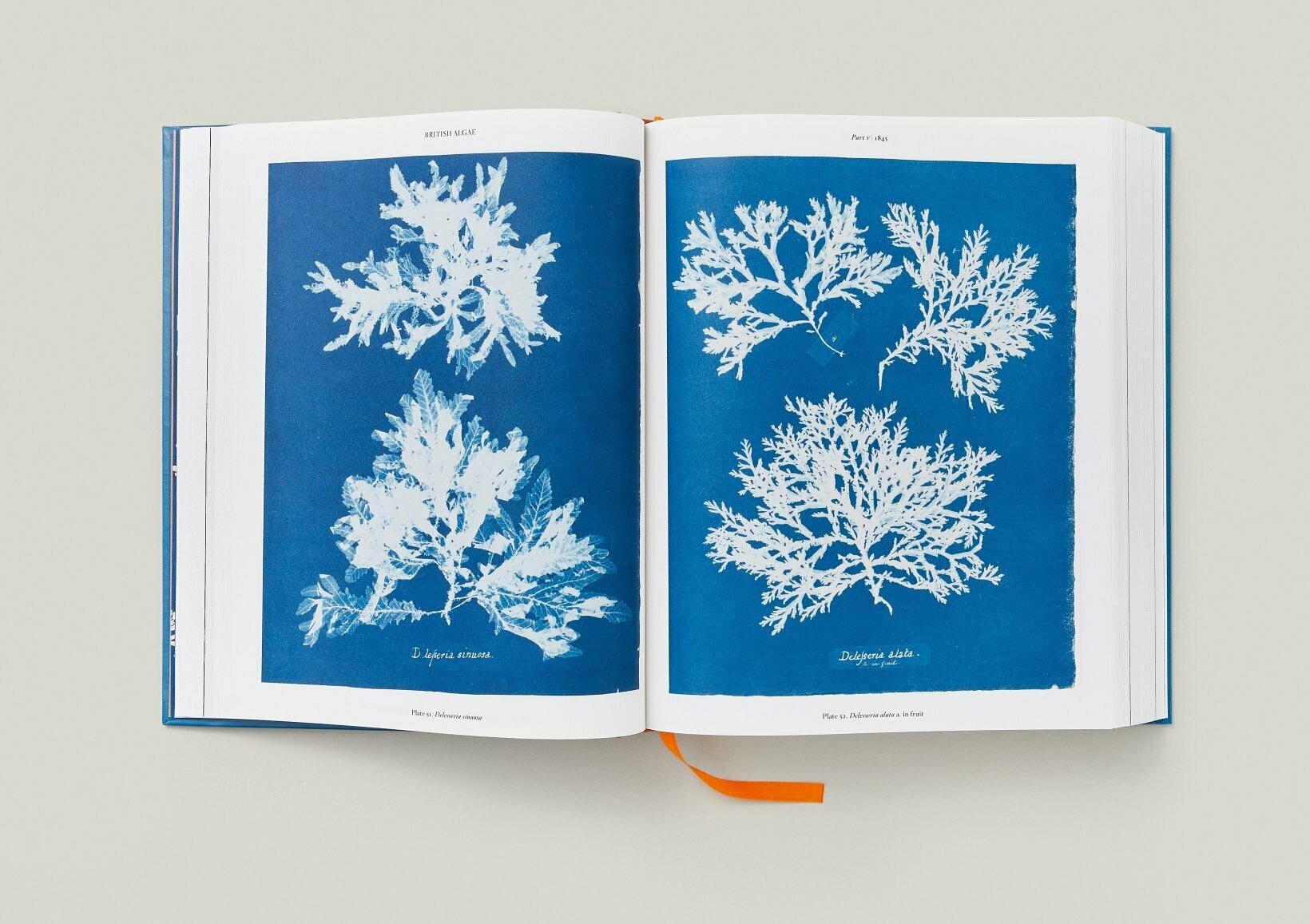
English botanical artist and photographer Anna Atkins (1799 – 1871) is historically famous for being the first person ever to publish a book that had been illustrated with photographic images. This book, Photographs of British Algae: Cyanotype Impressions (1843) is being reprinted for the first time in full, in a new edition merging together her other album on Cyanotypes of British and Foreign Ferns (1853).
A 19th-century female photography pioneer, some speculate that Atkins may have been the first woman ever to create a photograph, although it is unclear if Constance Fox Talbot actually claimed this title first. Atkins was, however, the first woman to use the fledgling medium of photography for scientific purposes.
• These are the Top 25 women in photography you should know.
The cyanotype process of photography involves exposing paper coated in an iron salt solution to Ultraviolet light, resulting in a cyan-blue print once washed. It was invented in 1842 by Sir John Herschel (1792-1871) and is still used today by many creatives as an old monochrome photographic printing process using a light-sensitive surface that can be done easily at home.
Anna Atkins created some phenomenal cyanotypes in her lifetime, capturing the delicacy of algae and ferns in her albums from her open-air laboratory in Halstead, Kent. She embarked on a project to document botanical species using a completely new artistic medium during the Victorian era, and collected dried plants for the purpose of science and creating her botanical blueprints.

Her husband, John Pelly Atkins, and father, John George Children, were both friends with William Henry Fox Talbot, who is credited by many as the founder of photography, along with contributions from Louis Daguerre and Joseph Niepce.
See: Who invented the camera, and when?
It was by Talbot's influence and teachings that Atkins learned to create calotypes, and other photogenic drawing techniques such as photograms, by placing objects onto light-sensitive paper leaving unexposed traces.

In this newly reprinted edition of Atkins' work, over 550 cyanotype impressions are accompanied by a series of introductory essays from Peter Walther, author of the book, contextualizing the groundbreaking contributions and seminal works of a female pioneer in the photographic field during this period.
Atkins was said to be a master of multiple disciplines and was the first to recognize the potential of cyanotypes for both her own practical interests in botany and taxonomy, as well as its intriguing artistic potential for photographic purposes.
These albums are a perfect synthesis of art and science, and the Prussian cyan-blue pigment left behind on the surface paired with the white subject area resembles the delicacy of porcelain, but in the form of floral botanical masterpieces with a timeless aesthetic appeal.

The book, Anna Atkins. Cyanotypes can be purchased in the format of a 660-page Hardcover edition with a slipcase, and is available next month via TASCHEN publishing for £100 / $125.
• You might also be interested in the best camera bags for women, as well as the Photo campaign which aims to change how women are pictured handling money.
• These are 27 female photographers you should know, and take a look at the Top 100 women in photography: RPS names its Hundred Heroines.







